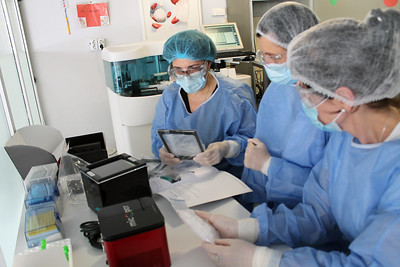A month ago, I opened a survey to investigate how KM has fared during the pandemic and associated recession. Here are the results.
We conducted the last of our three triennial Knoco Global Surveys of Knowledge Management in 2020, and these reflect the state of KM in organisations prior to the pandemic. So we decided to conduct an additional survey in April/May 2021 to investigate how the pandemic affected the state of KM in organisations, and also how KM supported these organisations.The 2021 Covid Survey was released through Twitter, Linked-In, this blog, and also direct emails to respondents to the 2020 global survey. A total of 83 responses were received.
Continued existence of the KM program
The first survey question covered the continued existence of KM programs during the Covid period. 6 options were offered, and the proportion of responses to each option is shown below.
KM budget.
Although KM continues, has the level of investment remained the same? The responses are shown below.
In the majority of cases (58%), the KM budget remains unchanged. There are roughly equal segments where the budget has increased (16%) and decreased (19%). Given that, in the previous pie chart, only 5% of respondents reported a contraction in the KM program, then in some cases the KM program must have continued with less money. Also the 46% who reported an expansion of the KM program is not matched by an expansion in budget. So although KM continues, it seems KM professionals are often being asked to contribute more.
Continuity of KM roles.
Given the continuity of KM programs, it is no surprise to see continuity of KM roles. Very few respondents have left their KM programs, and only 3 people out of the 83 surveyed reported losing their KM job during the pandemic. Although the loss of these three jobs will have been a huge issue to the people involved, it seems in general as if there has been a reassuring level of role continuity during Covid.However it must be acknowledged that the survey sample set is biased in favour of people who remain in KM employment, are still answering email addresses linked to the 2020 survey, and are still following KM blogs and twitter feeds. The true percentage of people who have lost a KM job due to the pandemic and associated recession may well be higher than the 6% recorded here.
Whether KM was easier or harder during the pandemic.
For those respondents whose KM programs continued during the pandemic, the next series of questions looked at how the programs changed. The first of these questions addressed whether KM had been easier or harder during Covid-induced lockdowns and remote working. The pie chart below shows that respondents were roughly even split between those who found it harder, those who found it easier, and those for whom there was no difference.
Changes in focus for KM
Respondents were asked whether the focus of their KM program had changed. Answers are shown below. About half said there was a slight change in focus, a quarter said a significant change, and a quarter reported no change in focus.

Participants were asked what new work items had been added to the KM scope. 31% reported no new work items. The most commonly reported new work items were collaboration, digital transformation, expansion within the organisation, and delivery/facilitation of online events. Other than these, there was a very wide range of new items, each mentioned by very few people.
Participants were asked what old work items had been removed from the KM scope. 77% reported no removal of old work items, which perhaps continues the theme of KM programs expanding and doing more, albeit not always with more budget. The most commonly reported removed work item was the facilitation of face to face events.













